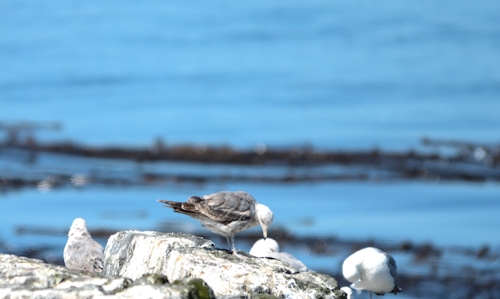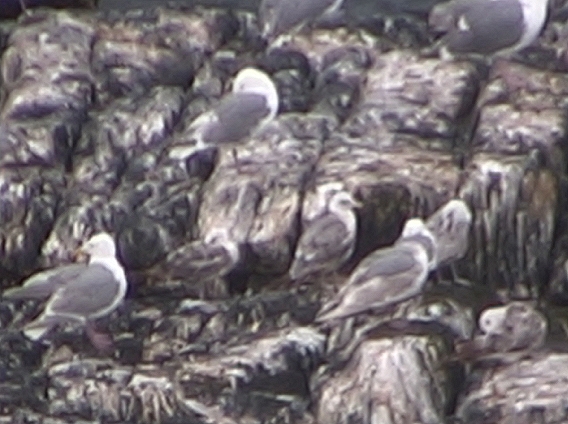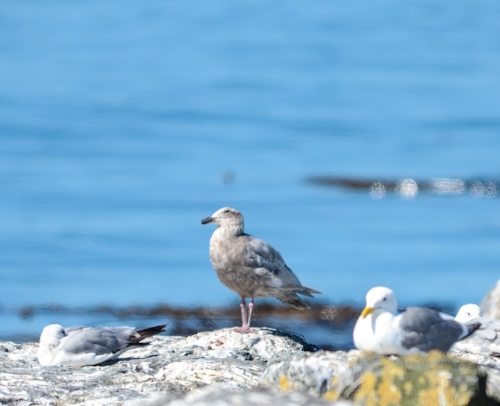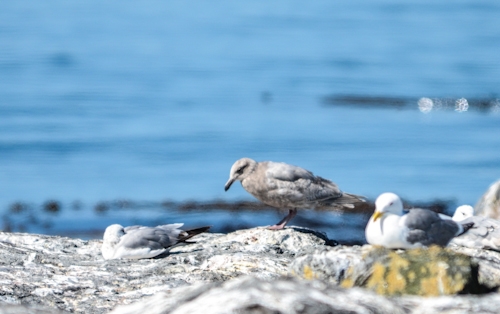- Taken from Cam 1, the small gulls in the image are probably mew gulls. July 2012, GF.
- One of the Juvenile stages of the mew gul
Physical description
- slender, yellowish, or green legs, with webbed feet
- gray wings and back with a plain white head, greenish – yellow bill
- brown plumage and spotted tan
- dark beak with a pink undertone
- max lifespan up to 24 years
Habitat: Mew Gulls flourish in and along coastal ranges, tidal estuaries, interior lakes, and marshy grassland.
Behavior: Mew Gulls will not stray far from land and are known to seek the shore first in the occurence of stormy weather. The gull will also advace further inland in large flocks, into agricultural districts, to feast on the exposed worms and larvae after the land has been plowed. Northern gulls will migrate south when breeding season begins.
Food Eaten: herring, worms, insects, berries, grains, crustaceans, clams, mussels, young sea birds.
Predation: Cannibalistic adult gulls will eat eggs and hatchlings.
Predators: gulls, sharks
Migration: Mew gulls migrate in summer through-out Northwestern Canada and Alaska, winter along the Pacific Coast. They rarely migate inland South of its breeding range.
Domain Eukarya
Kingdom Animalia
Phylum Chordata
Class Aves
Order Charadriiformes
Family Laridae
Genus Larus
Species canus
Common Name: Mew Gull
|
Other Members of the Class Aves at Race Rocks.
|
and Image File |
 The Race Rocks taxonomy is a collaborative venture originally started with the Biology and Environmental Systems students of Lester Pearson College UWC. It now also has contributions added by Faculty, Staff, Volunteers and Observers on the remote control webcams. October 20 2003 Tya Arizona PC year 30 The Race Rocks taxonomy is a collaborative venture originally started with the Biology and Environmental Systems students of Lester Pearson College UWC. It now also has contributions added by Faculty, Staff, Volunteers and Observers on the remote control webcams. October 20 2003 Tya Arizona PC year 30 |




